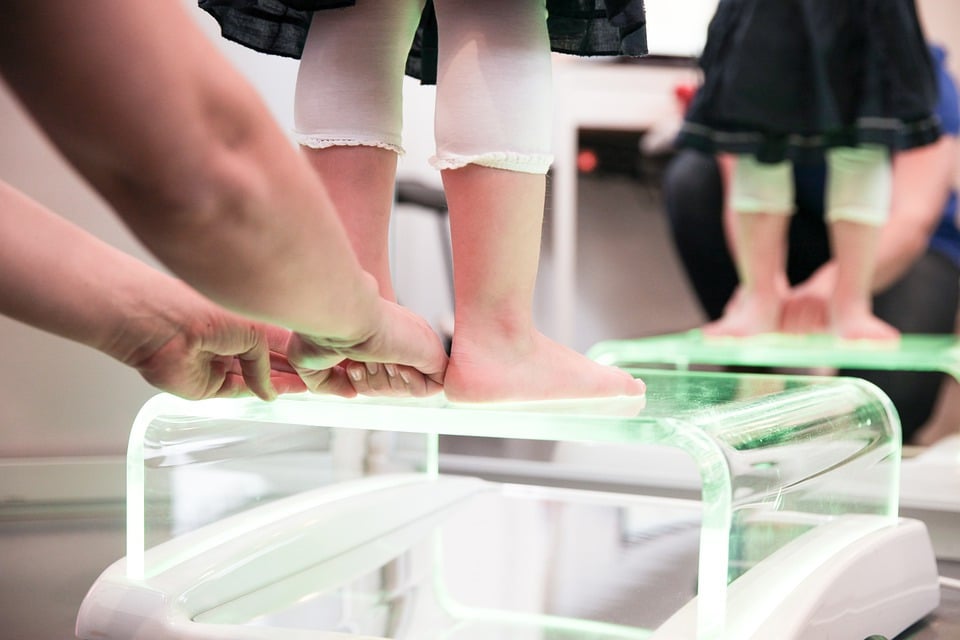Children are often bundles of energy and it’s always a pleasure to see them achieving each milestone. But sometimes they need some medical assistance to varying degrees. Has your family doctor referred your child to occupational therapy? Are you wondering: “What does a pediatric occupational therapist do?” Need tips on how to find a great therapist for your child? Then, let’s begin this discussion!
What Does a Pediatric Occupational Therapist Do?
Physical impairment, injuries, developmental delays, and other factors, can impede a child’s ability to perform the usual age-appropriate tasks. They may also stop a child from progressing through common social and cognitive development phases.
A pediatric occupational therapist helps children reach important developmental milestones. Pediatric occupational therapy is centered on supporting children in developing the critical skills they need to become healthy, independent adults. They assist children in building the skills they need and use each day such as brushing their teeth, drawing, coloring, writing their name, or playing well with their friends.
Pediatric occupational therapists consider children in a holistic light. They seek to figure out the origin of the delays or limitations. They pay close attention to a child’s gross and fine motor skills, cognitive abilities, social development, and mastery of self-care routines. These skills and abilities all aid a child to grow into a healthy, well-adjusted adult.
Qualifications of a Pediatric Occupational Therapist
A pediatric occupational therapist works with children of all ages – from infants to teenagers. The qualifications of a pediatric occupational therapist begin with an undergraduate degree. Since there isn’t a pediatric occupational program, this degree can be in psychology, biology, kinesiology, anatomy, or even liberal arts.
A pediatric occupational therapist also has volunteer experience working with children and/or with people with mental disabilities. This work experience helps them gain acceptance into a specialized master’s degree in occupational therapy. In these graduate programs, the coursework and fieldwork focus on assessing patients’ abilities to perform daily activities, critical reasoning skills, anatomy, and best practices in skill development and rehabilitation.
The final step on the path to becoming a pediatric occupational therapist is certification. All therapists must pass the National Certification in Occupational Therapy (NBCOT) exam. Furthermore, they may also need to meet additional state requirements depending on where they choose to practice.
Therefore, visiting a certified pediatric occupational therapist should be worrisome at all! These are medical professionals who have achieved the requisite degrees and certifications in their field. Your child will be in good hands!
How Do I Know if I Need a Pediatric Occupational Therapist?
More than likely, your family doctor referred your child for occupational therapy. This often happens when developmental delays are observed. Alternately, your child may have been diagnosed with a physical and/or mental condition that’s associated with a high probability of delays. Therefore, occupational therapy can help improve your child’s motor and cognitive skills, as well as his/her sensory processing, communication, and play skills.
Furthermore, if you observe one or more of the following in your child, you should consult a pediatric occupational therapist:
- Easily distracted
- Difficulty concentrating in school
- Inability to follow instructions and complete tasks
- Easily exhausted by schoolwork
- Poor impulse control
- Hyperactivity or low energy
How Do I Find a Good Pediatric Occupational Therapist?
You may have a referral from your family doctor or you may have a recommendation from family and friends. However, you can also search several online directories to find pediatric occupational therapists near you.
If searching through online directories doesn’t help you find a few therapists to consider, then you may also try these tips:
- Call your local hospital and request to speak with someone in their rehabilitation or occupational therapy department.
- Call or email an occupational therapy program at a college or university near you. Then ask for a faculty member in their pediatrics department. You can find a list of accredited university programs at the American Occupational Therapy Association’s (AOTA) website.
Factors to Consider When Choosing a Pediatric Occupational Therapist
Finding the right pediatric occupational therapist is important for your child’s development and wellbeing. You need to find a therapist that is a great fit for your child, yourself, and your family.
Furthermore, you want to select a pediatric occupational therapist who practices effective treatment methods which include:
- A diagnostic evaluation before treatment begins. This report must be written in easy-to-understand language. Nothing should be uncertain.
- A willingness to learn more about your child, you, and your family. Being open to conversations about your child’s characteristics, needs, and the use and effectiveness of different therapies.
- Written treatment goals before any treatment sessions to have everyone in agreement about what needs to be accomplished.
- An emphasis on parent education at all sessions. A good treatment plan should have dedicated hours for parent feedback and education throughout.
- Intensive treatment schedule (at a minimum twice per week but preferably three) over a shorter time frame. This intensive treatment has been found to deliver lasting neurological and behavioral changes.
- Use of play and challenge-based activities to build self-esteem and generate change.
- Direct one-on-one treatment in a sensory-rich environment with specialized equipment to support sensory therapy.
- Use of purposeful sensory stimulation to build skills such as eating, dressing, playing with peers, social participation, and self-regulation.
- Detailed documentation that monitors progress during treatment and afterward.
What Can I Expect From My Child’s First Session?
Your child’s first session with your pediatric occupational therapist will likely be an evaluation lasting anywhere from 30 minutes to an hour. The pediatric occupational therapist will assess your child’s gross motor and fine motor skills, visual perception, hand-eye coordination, handwriting ability, as well as daily living and sensory processing skills.
Your therapist may need to evaluate your child’s joints and muscles, so you may have to remove outer layers of clothing. Therefore, ensure that he/she is wearing appropriate undergarments for that visit.
Also, please arrange childcare for any other siblings. You will need to pay full attention to your child and the discussion with your pediatric occupational therapist. If you are distracted by keeping track of your other children, you will not be fully engaged. Alternately, you can have another adult accompany you and your child’s siblings to this appointment.
For subsequent sessions, your pediatric occupational therapist may have your child engage in fun, motivating activities. These include board games, crafts, and building obstacle courses. These playful activities aim to help your child develop his/her physical, cognitive, sensory skills to be able to independently perform daily tasks.
Questions You Should Ask Your Pediatric Occupational Therapist
A great fit between the pediatric occupational therapist and you and your child is very important. Here are some questions that you can ask potential candidates for this role:
- How long have you been practicing in your profession?
- Do you have any specialized training in the area(s) of my child’s diagnosis?
- What form did that specialized training take (graduate school, professional seminars, fieldwork, etc.)?
- Have you recently worked with any children with similar diagnoses as my child?
- What approach do you follow to treat these children?
- How successful is this approach with your previous and current clients?
Of course, these questions are just to get you started on creating your list of questions. Never be afraid to ask as many questions as possible because you are your child’s best advocate.
How Do I Find an Occupational Therapist for My Child?
What does a pediatric occupational therapist do? How do you find a good therapist for your child? We have explored the answers to these and other questions. Do you live close to Shelton, CT? Then you need to visit Moving With Hope to get expert occupational therapy and other support for your child. We will also work with your existing medical team to ensure that your child gets the best healthcare. Contact us today to learn how we can support you and your family on this wellness journey.




